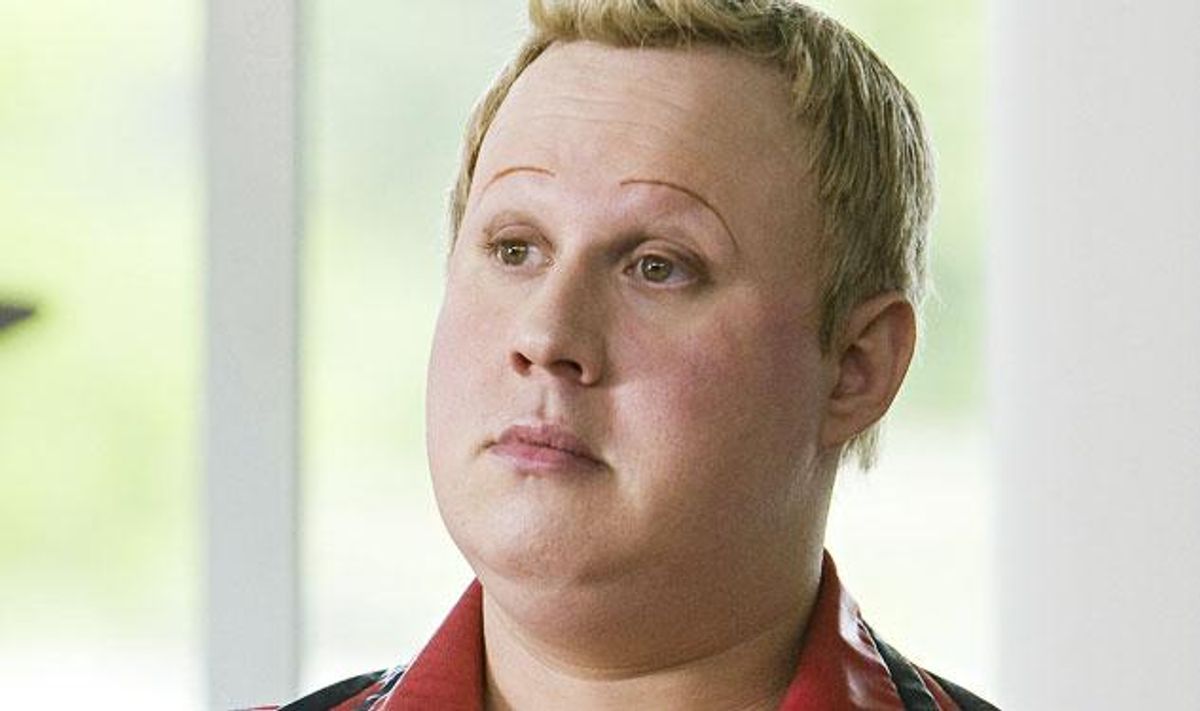Television
The Other British Invasion

Don't be fooled by a stiff upper lip -- it yields to campier sensibilities.
September 27 2012 2:16 PM EST
May 26 2023 1:13 PM EST
aaronhicklin
By continuing to use our site, you agree to our Private Policy and Terms of Use.

Photo: Michael Tackett/Everett Collection
Five years after the Beatles first appeared on the Ed Sullivan Show, drawing 73 million viewers, another British phenomenon made its debut on the BBC. Monty Python's Flying Circus was a sketch show starring five young comedians and oodles of camp. It wasn't particularly gay, nor was it particularly straight, but it amply demonstrated the enthusiasm of the British male for drag. Ever since, we've succumbed to a steady stream of men in frocks sailing across the Atlantic -- from Benny Hill to Dame Edna (OK, Australian, but groomed in the U.K.) to Tinky Winky, and culminating in the twisted antics of Little Britain's Matt Lucas (above) and David Walliams, who between them conjured the entire population of the U.K.
"There's no taboo to break here -- we've always had men dressing and playing as women," says Lucas, who appears in Community this fall. "It goes back to early Shakespeare when boys took the female roles."
As in the U.S., a British teenager growing up in the '80s had few positive role models and mostly had to rely on stock caricatures of fey and ineffectual men. But they were also, sometimes, the proverbial port in a storm. Are You Being Served?, a show constructed entirely on innuendo, featured the mincing, limp-wristed, but lovable Mr. Humphries, whose antics as one of a team of department store staff ensured you laughed with him, never at him. "As a child, long before I knew that Mr. Humphries was supposed to be gay, or that I would be gay, he was the character I gravitated toward, because he was very celebratory and very celebrated, and he was always a winner, never a victim," says Lucas. "With Mr. Humphries, it's about what isn't being said, but with someone like Dafydd in Little Britain [a.k.a. "the only gay in the village"] it's about what is being said. He seems to have been one of the first characters in mainstream comedy who talked about gay sex. At the same time, the lewdest things he can think of are always topped by heterosexuals in the village who talk about felching and rimming without batting an eyelid -- it's Dafydd that turns out to be a prude."
Outside of comedy, British TV in the '90s often seemed like a series of watershed moments, from the astonishing 1990 BBC miniseries of Jeanette Winterson's lesbian coming-of-age novel, Oranges Are Not the Only Fruit, to the launch, in 1999, of Queer as Folk, set in Manchester's gay village (and subsequently remade for American audiences). By the turn of the century, gay characters had become a permanent fixture in British soaps and dramas, a popular mainstay of talk shows (thank you, Graham Norton) and increasingly commonplace in teen series such as Skins. By the beginning of our current decade, even that fabled stalwart of Brit TV, the costume drama, could no longer resist the tide of time. As the handsome villain of Downton Abbey, Thomas Barrow shows us what we've long known: Gays have always been there, they just haven't always been visible.
Watch a clip of the first episode of Little Britain featuring Daffyd Thomas, "the only gay in the village."
Beware of the Straightors: 'The Traitors' bros vs. the women and gays